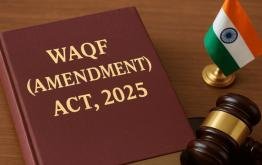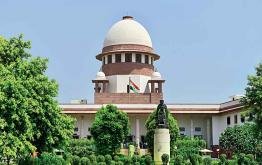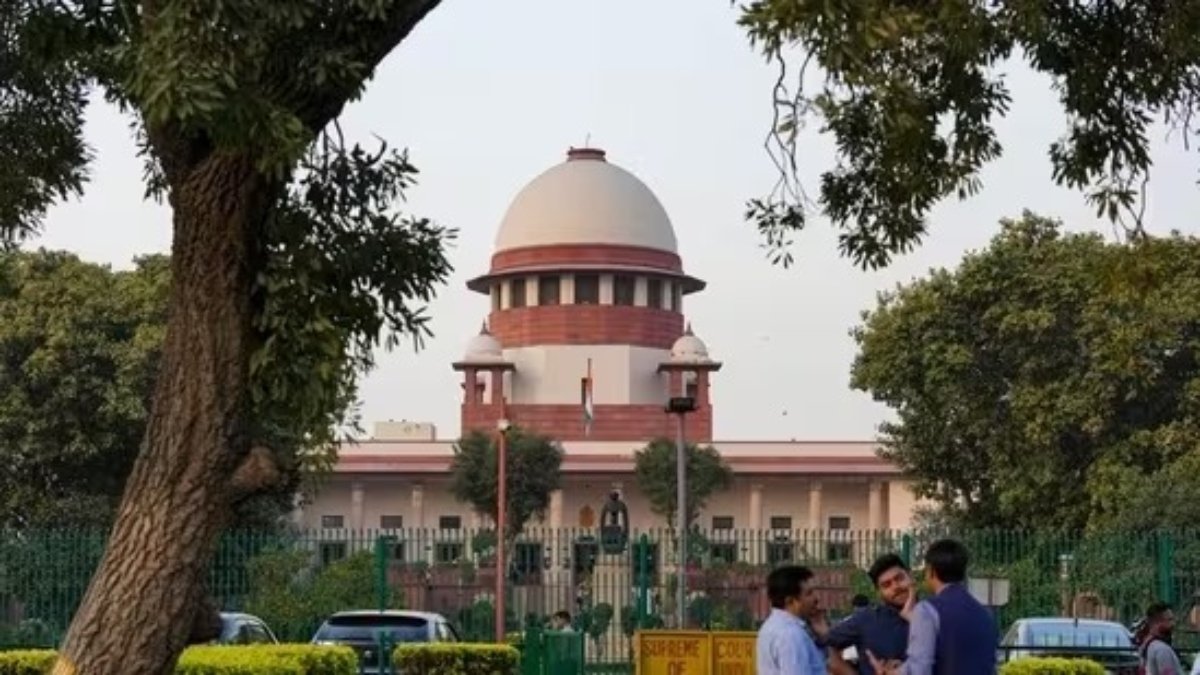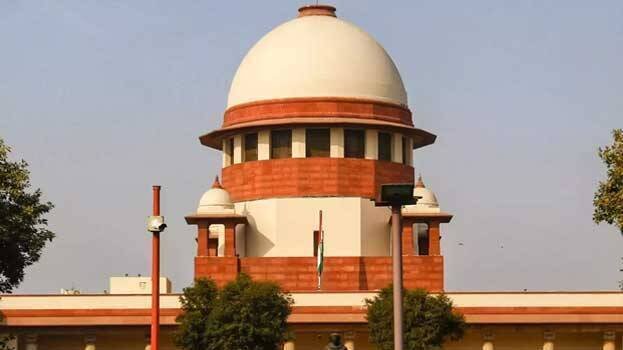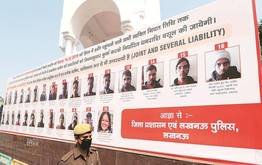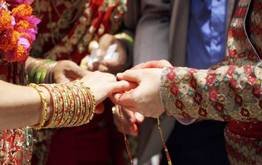
What is the judgment of Allahabad High Court on the freedom to choose a life partner of any other religion?
In an important decision, the Allahabad High Court in an order dated 11 November 2020 stated that the right to live with the person of their choice, whatever their religion, is a natural element of the right to life and personal liberty.
It has been 15 days since the order, but its copy has been available this week, after which it is being discussed a lot. The bench of Justice Pankaj Naqvi and Justice Vivek Agrawal of Allahabad High Court has given this important decision.
On the orders given in Priyanshi alias Samreen and others, vs. Government of Uttar Pradesh and others, and Noor Jahan Begum alias Anjali Mishra and others vs. Government of Uttar Pradesh, the Allahabad High Court stated in its remarks, "Any of these Even the order has not seen the right of two mature people to choose their own freedom. "
The court ordered, "We do not consider the decisions given in the cases of Noor Jahan and Priyanshi to be good law".
Let us see what important things the Allahabad High Court has done in its decision…
- The court said in its order, "We do not see Priyanka Kharwar and Salamat as Hindus and Muslims. Instead we see them as two adult people who are living together peacefully and happily by their will and choice. ''
- "The right to live with the person of their choice, whatever their religion, is rooted in the right to life and personal liberty. Interference in personal relations will be a serious violation of the freedom of two people to make choices."
- The court has said, "The decision of an adult person to live with a person of his choice is tied to the right of a person and when this right is violated, then it is a fundamental right of the person to live life and the fundamental right to personal liberty." Violates because it contains Article 21 principles of the Constitution of freedom of election, choice of partner and living with dignity. ''
- The court in its judgment referred to the decision of the Supreme Court in the case of Shafeen Jahan vs. Ashokan KM. The Allahabad High Court said that the Supreme Court has consistently respected the freedom of an adult person.
- Allahabad High Court also referred to the decision of the Supreme Court in the case of Shakti Vahini v. Government of India. Apart from this, the court also cited the decision in Nand Kumar v. Government of Kerala and said that it is clear in these decisions that the adult person has the freedom to make his choice.
- The court also referred to the Supreme Court's decision in KS Puttaswamy vs Government of India regarding the right to privacy and said that the right to choose a partner has nothing to do with caste, creed or religion and this article-21 The integral part lies in living life and personal freedom.
- Commenting on the decisions in Nur Jahan and other similar cases, the court said that ignoring the will of an adult person would not only be contrary to the freedom of elections, but it would also threaten the principle of unity in diversity.
- On the decisions in the Priyanshi and Nur Jahan cases, the court said that in any of these decisions, two mature people have to choose their partner or whom they want to live with. The issue of freedom to choose it and the issue related to freedom has not been taken into consideration. The court further said that the decisions in Noor Jahan and Priyanshi cases are not good in terms of law.
- The bench of Justice Pankaj Naqvi and Justice Vivek Agrawal of Allahabad High Court remarked in this same order, "We are unable to understand that if the law allows two gay people to live together peacefully, neither can any person Neither any family or even the state has the right to object to two adult people living together at their will. ''
Allahabad High Court's decision and background
Advocate Arvind Kumar Tripathi in Allahabad High Court says, "The FIR dismissed in the recent judgment of the Allahabad High Court is based on whether two adults can live together under Article-21?"
Tripathi says that "As far as marriage is concerned, marriage has nothing to do with religion." It is related to desire. And desire is related to article-21 Liberty. In this case, there is more clarity in this decision compared to earlier decisions.
Supreme Court Advocate Shashwat Anand says that the Allahabad High Court has a very good judgment and it has made the basis of freedom of privacy and freedom of will.
The background of the case is that a petition was filed in the Allahabad High Court on behalf of Salamat Ansari and three others. Salamat Ansari and his wife Priyanka Kharwar alias Aaliya along with two others had sought the dismissal of the FIR lodged against them in the High Court.
In this case Priyanka had converted to Alia and converted and married Salamat Ansari. In protest, Priyanka's father had filed an FIR. Sections 7 and 8 of the Poxo Act were also imposed in this FIR, including 363, 366, 352. Salamat, his brother and his mother were accused in this.
The court observed the birth date of Priyanka aka Alia and it was found that she is an adult. Anand says that in such a situation all the acts of Poxo were dismissed. At the same time, the court admitted that the forced sections have been imposed to trap them.
It was argued in the High Court on behalf of Salamat Ansari that Salamat Ansari and Priyanka Kharwar aka Alia are adults and are eligible to marry. This side said that after Priyanka left her Hindu identity and converted to Islam, both of them married Muslim customs on 19.8.2019.
Both people have been living together as husband and wife for the past one year. They both said that Priyanka's father had lodged this FIR to end her marriage with the wrong intention and since both of them have not committed any crime, this FIR should be dismissed.
The other side said that conversion to marriage was prohibited and there was no legal recognition of such marriage. In such a situation, the court should not give any relief to these people.
Anand says that the government had demanded not to give relief to Salamat based on the last two decisions. Anand says, "The court said that when these two adult people have decided to live together, then we should respect article-21." With this, the court dismissed this FIR.
Nur Jahan and Priyanshi cases
In the case of Priyanshi in September 2020, the single bench referred to the case of Nur Jahan Begum alias Anjali Mishra and others v. State of Uttar Pradesh in 2014, stating that mere conversion to marriage was unacceptable.
In the Nur Jahan Begum case, the Allahabad High Court dismissed the petitions filed for the need of protection as a married couple. In this case too, the girl left Hinduism and converted to Islam and then married.
Four other similar cases also came before the court.
In these cases women were unable to prove their alleged conversion because they failed to prove their understanding of Islam. In such a situation, the court ordered that these alleged marriages are illegal because it was done after a conversion that cannot be justified according to the law.
Anand says, "But, the Allahabad High Court has said in its judgment that once it was proved that both the people getting married are adults, the court should not have gone to their denomination."
In its recent decision, Allahabad High Court has referred to similar decisions in its previous cases.
Yogi government's ordinance to stop forced conversion
However, in spite of the Allahabad High Court order, the Yogi Adityanath government of Uttar Pradesh has approved the 'Uttar Pradesh Law Against Religion Transformation Prohibition Ordinance, 2020' on 24 November 2020.
According to this law, 'forced conversion' will be punishable in Uttar Pradesh. It can be imprisoned from one year to 10 years and a fine ranging from 15 thousand to 50 thousand rupees.
According to this ordinance of the Yogi government, if 'illegal conversion' happens to a minor or women belonging to a scheduled caste or tribe, then there will be a fine of three to 10 years and a fine of Rs 25,000.
Advocate in the Allahabad High Court, Vinod Mishra, says, "The government has tried to curb forced conversions or other illegal activities through this law. The government wants to curb the alleged 'love jihad'".
Will a confrontation arise?
Can a conflict situation arise in the coming days between the Uttar Pradesh government's law to stop 'illegal conversion' and the Allahabad High Court's decision?
Advocate Arvind Kumar Tripathi in the High Court on this issue says, "It would not be right to say that because the ordinance passed by the government which has not yet become the subject of judicial review. It did not say until the case is filed on it." It is possible that these two decisions may hit each other or not. "
Tripathi says, "The interesting thing is that the alleged love jihad created by the Uttar Pradesh government has introduced this ordinance will not survive the judicial review. But, when it is challenged, the situation will be clear."
Advocate Shashwat Anand in the Supreme Court says that the law brought by the Yogi government is actually on forced conversion and it would not be right to call it the law of 'Love Jihad'.
He says, "The ordinance of the Uttar Pradesh government is linked to forced conversions. Now, if this law is misused, this decision of the Allahabad High Court will work as a wall."
He says that in such cases one side will say that it is forcible conversion while the other party will say it by consent. In such a situation, the Yogi will act as a decision of the High Court on the wrong use of the law of the government.
In the coming time, it will be clear that how will the Allahabad High Court's decision affect the ordinance brought by the Yogi government?



